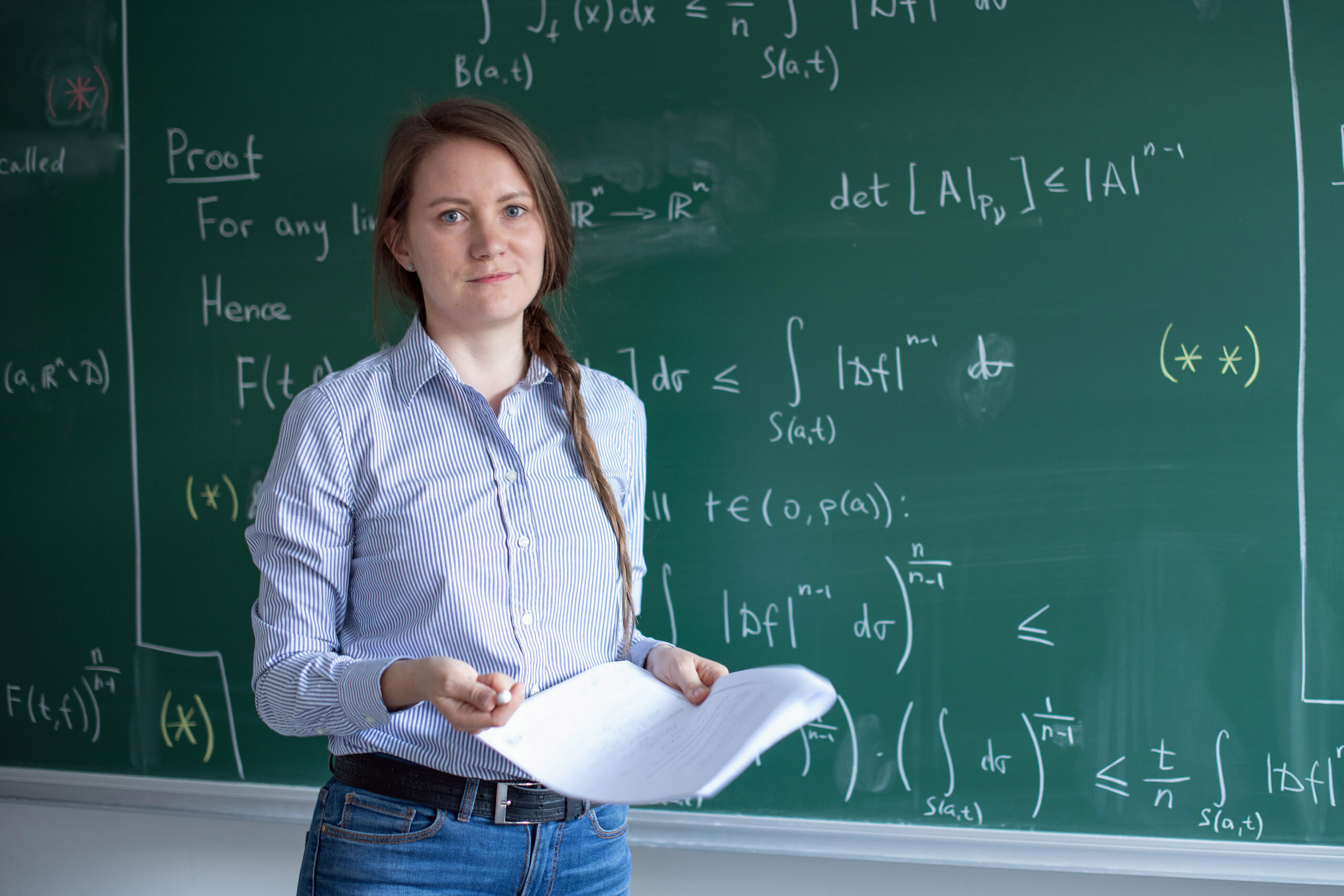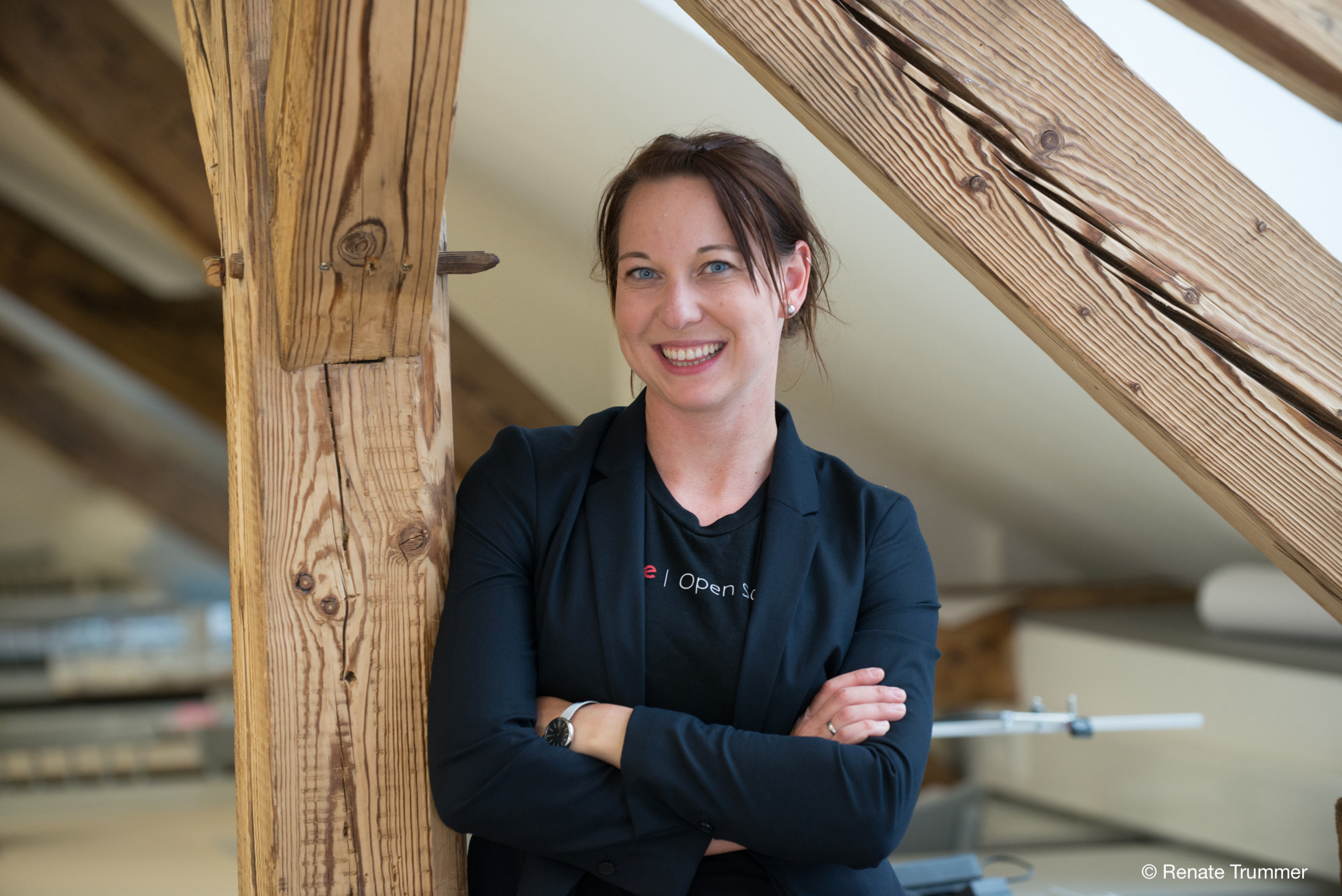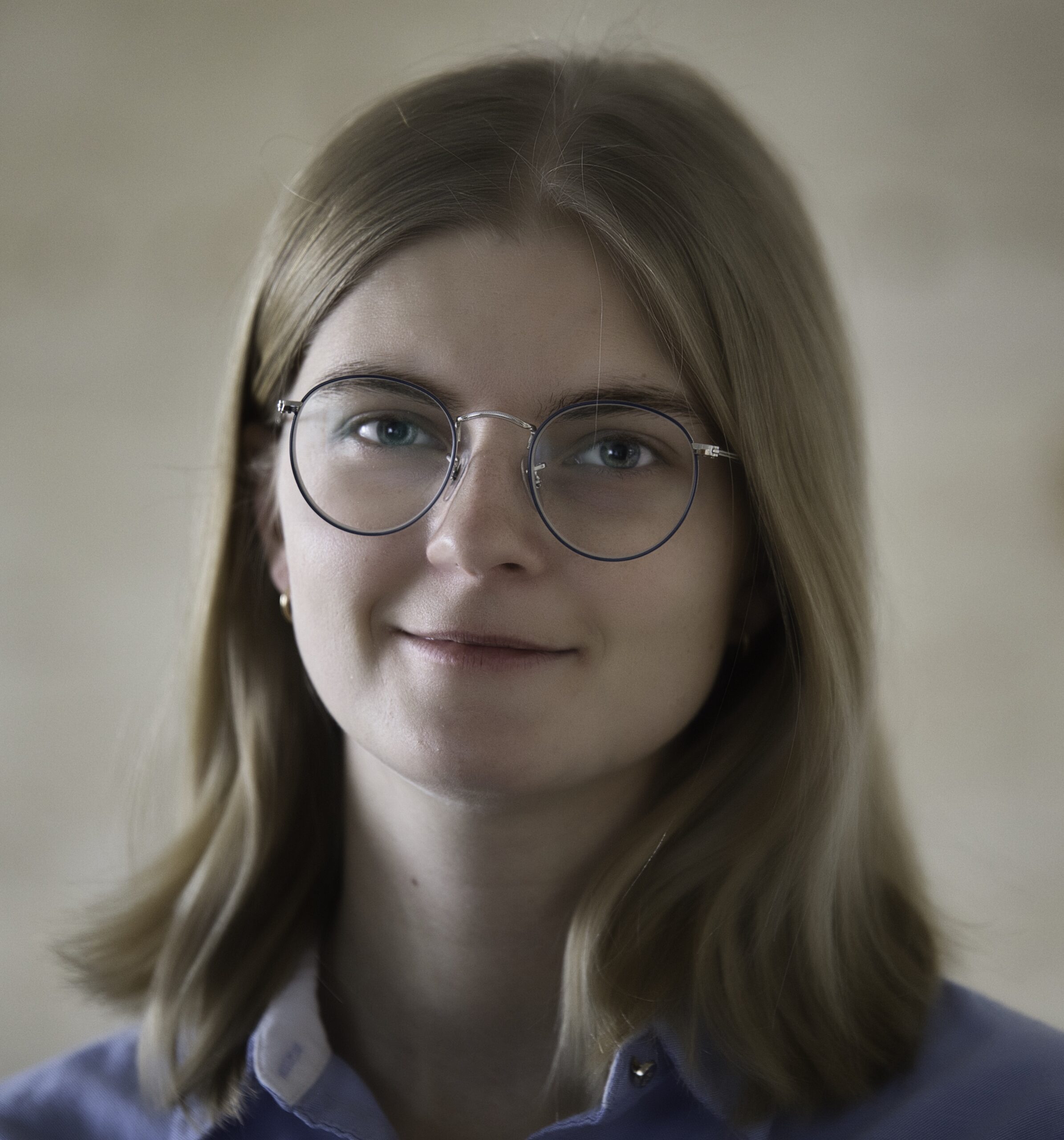Born in Klagenfurt, Austria • Birth year 1975 • Studied Mathematics at the University of Vienna in Austria • PhD in Mathematics from the University of Vienna Austria • Lives in Vienna, Austria • Professor of Mathematics and Vice-Dean, Faculty of Mathematics, University of Vienna
I was drawn to maths not because of my background, but because it came naturally. I loved being good at maths. Even though my father was a university professor in math education, he never pushed me into this field.
My inspiration instead came from the simple content we learned at school. I enjoyed mathematics as a creative process with very strict rules and gained immense satisfaction from overcoming these rules to achieve success. If I am perfectly honest, another reason was that I was just really good at maths in school, which boosted my ego. I enjoyed it when my peers asked me for help.
My Career Path – Between Klagenfurt and Vienna
After studying mathematics for 5 years at the University of Vienna, I returned to my hometown, Klagenfurt. I really appreciated the relaxed pace of living in Klagenfurt compared to Vienna. The position was in applied mathematics, with a focus on optimization. Optimization in mathematics refers to calculations identifying the best solution among a set of alternatives, such as the quickest route via train from Vienna to Paris if one transfers at a third train station. This was quite different from my original focus on pure mathematics.
To me this offer in pure mathematics was akin to winning the lottery, which is why there was no question that I would return to Vienna.
During my time in Klagenfurt, my mathematical taste was strongly shaped by my professor, who, like me, really enjoyed mathematical problems that are easy to state but hard to solve.
After a few years in Klagenfurt, I ended up back in Vienna having an offer for a postdoctoral position. To me this offer in pure mathematics was akin to winning the lottery, which is why there was no question that I would return to Vienna. Here, I returned to my initial field of pure mathematics. My specialty now is enumerative combinatorics. In enumerative combinatorics, our job is to count possibilities such as how many ways can you shuffle a deck of cards or how many different routes exist between two points in a grid.
Why Combinatorics?
Combinatorics used to be a bit of an underdog in mathematics.
What I love about combinatorics is that the problems are very easy to state, but hard to prove. Furthermore, it’s a very accessible field that does not require extensive reading in order for doctoral students to start working in it.
Combinatorics used to be a bit of an underdog in mathematics. However, it is valuable for applications in diverse fields such physics and statistics, and therefore now seems to have become a rising star, which I find really satisfying to witness.
Some people, not least my father, ask why I chose pure mathematics over applied mathematics. What drives me particularly in pure mathematics is the aesthetic aspect, the desire to do something nice. I also really enjoy working on blue skies research (where the immediate applications are not yet known) and chasing deep discoveries. This can lead to revolutionary and useful outcomes in the long run that we can’t even predict at the time of doing the work, which feels very inspiring.
My Advice to other Mathematicians
My advice to others would be to always follow your own taste and concentrate on your chosen field. I believe success comes from motivation rather than pressure.
Yet over time, I started to appreciate that a very satisfying aspect of mathematics is establishing intellectual connections with other people.
My second piece of advice is to forge intellectual connections and work collaboratively. I started out working alone, partially because, when I was applying for positions in the early 2000s, people looked closely at whether you had single-authored papers. It was also what suited me best at the time, probably due to the fact that I was a woman in a male-dominated field. Yet over time, I started to appreciate that a very satisfying aspect of mathematics is establishing intellectual connections with other people.
My Thoughts on Women in Mathematics
When it comes to the struggles of women in mathematics, I do believe a contradiction exists. I am on a lot of hiring committees, and I have observed that if women publish with other people, the committee members often end up saying, “Well, she didn’t do it.” And I find it incredibly frustrating that this still happens.
This is why I would say as a female mathematician, a smart choice is going for a balance of single-author papers and collaborations. But maybe more importantly, you should do what you think suits you best.
I hope that we will get to a point in the future where a woman can be an excellent mathematician without it being remarked upon as something out of the ordinary.
Another aspect about being a woman in mathematics that frequently causes me irritation is that people feel very surprised when they find out that I am a mathematician. When they hear this, they usually assume that I’m a high school teacher. Then they find out that I’m a professor and are even more surprised. I don’t think that’s good news, and I do think that this is just down to my gender. While it creates some funny situations, it shouldn’t be the case in 2025.
I hope that we will get to a point in the future where a woman can be an excellent mathematician without it being remarked upon as something out of the ordinary.
Published on November 12, 2025.
Photo credit: Joseph Krpelan







Recent Comments